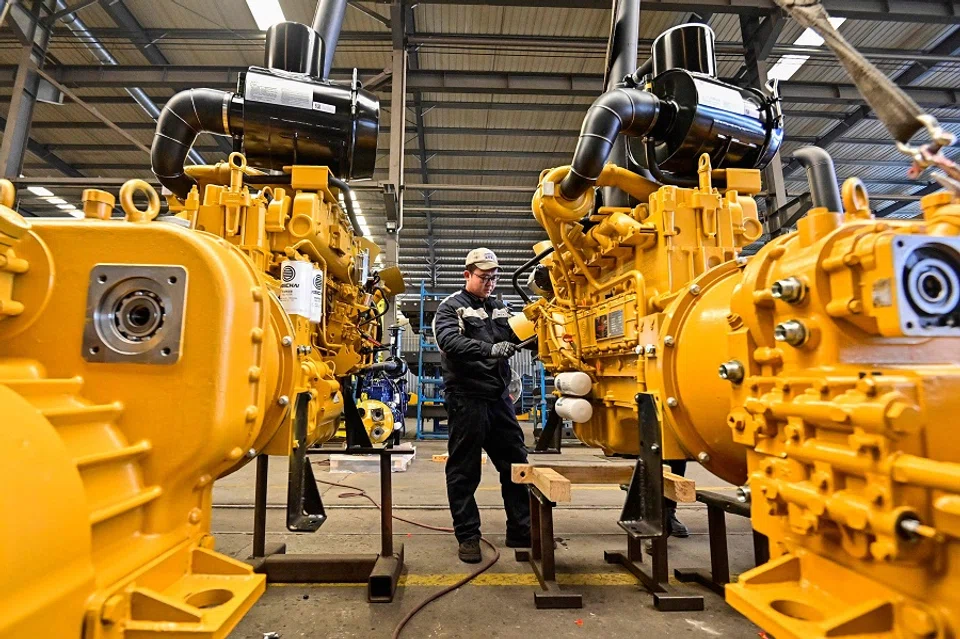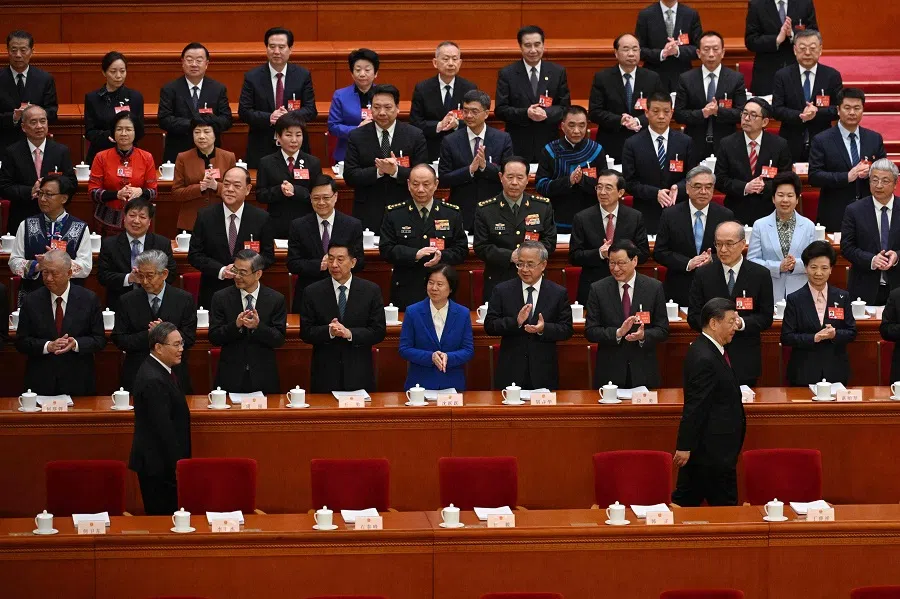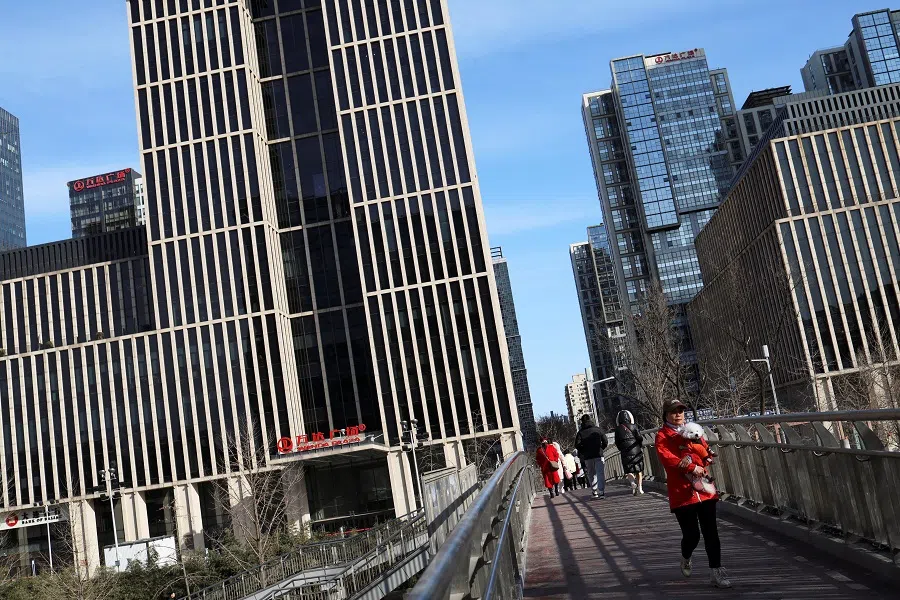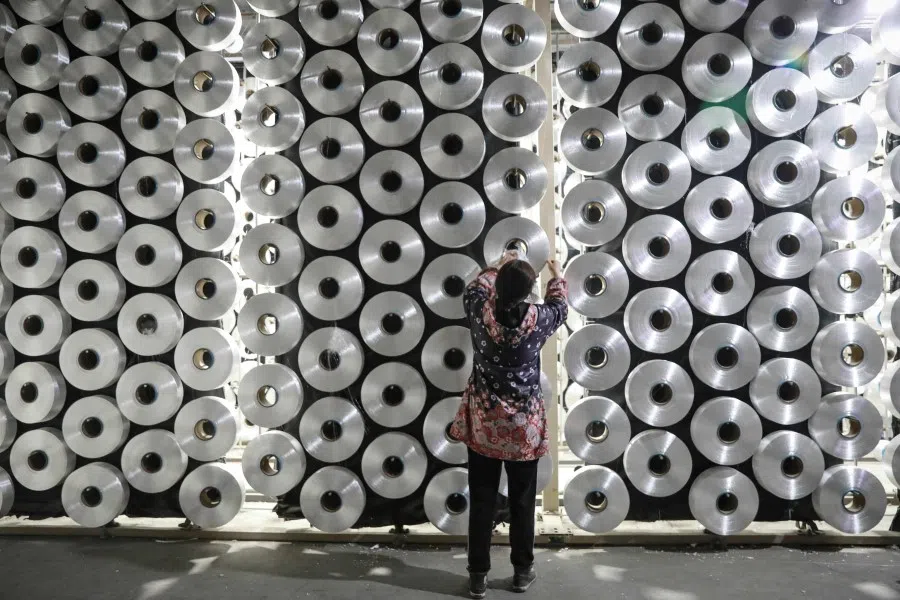Will better 'Made in China' products solve China's economic problems?
China looks set to drive its economy by focusing on boosting production, industrial upgrade and promoting "new quality productive forces". However, there are concerns that a move in this direction could lead to overproduction, impacting global markets. Lianhe Zaobao correspondent Yang Danxu looks into the matter.

After the term "new quality productive forces" became popular in China, a friend sent a message about the boss of baijiu merchant Wuliangye (五粮液) saying that the baijiu industry is an important vehicle for the development of new quality productive forces.
I found online that in January this year, the town of Maotai in Guizhou had already claimed that it was developing new quality productive forces through science and technology innovation. My friend joked, "Is baijiu also turning into a tech product?"
Risk of exploiting concepts
Tracing back, the term "new quality productive forces" was first mentioned by Chinese officials in September last year. The Chinese media had reported that during Chinese Communist Party General Secretary Xi Jinping's visit to Heilongjiang, he called for resources for science and technology innovation to be integrated in order to guide the development of strategic emerging industries and future industries, and form new productive forces.
During the Two Sessions in March, the term "new quality productive forces" was written into the government work report for the first time. "Striving to modernise the industrial system and developing new quality productive forces at a faster pace" was also listed as a top priority for the Chinese government this year.
Like the many slogans proposed by Chinese officials, "new quality productive forces" also sounds very abstract, but this did not hinder it from becoming a new buzzword. During the Two Sessions, National People's Congress deputies and Chinese People's Political Consultative Conference members would mention the term from time to time. Subsequently, local government officials and state media outlets also actively promoted this new concept.
... the generalisation and exploitation of concepts, as well as the waste and misallocation of resources, could become new problems.

But just as the phrase "new quality productive forces" is creating a buzz, it is also raising some concerns in the country.
Recently, Chinese state media Economic Daily twice sounded the alarm in commentaries, urging the people to remain calm about the development of new quality productive forces, as well as to remain highly vigilant against "rushing into it but having it all eventually fall apart". It also warned against "dressing up every idea or measure under the guise of developing new quality productive forces".
Previously, in a show of loyalty or for the sake of political achievements, officials from across the country have occasionally disregarded the laws of industrial development and blindly followed trends as soon as the higher-ups waved their baton.
Some enterprises would also make use of policy dividends to make money in hopes of becoming a "flying pig" (in reference to the Chinese saying that with a favourable wind, even pigs can fly). Hence, the generalisation and exploitation of concepts, as well as the waste and misallocation of resources, could become new problems.
Emerging industries that officials hope to advance include artificial intelligence, quantum technology and life sciences.

China's development of new quality productive forces has also raised fresh concerns outside the country. In the face of a complex and severe external environment, such as decoupling and supply chain disruptions, as well as domestic economic pressures such as insufficient domestic demand and weak expectations, Chinese officials have prescribed developing new quality productive forces as the new treatment for China's economy.
Concerns of excess production
According to the government work report, developing new quality productive forces entails giving full rein to the leading role of innovation, spurring industrial innovation through innovations in science and technology, and pressing ahead with new industrialisation, so as to "raise total factor productivity, steadily foster new growth drivers and strengths, and promote a new leap forward in the productive forces".
Emerging industries that officials hope to advance include artificial intelligence, quantum technology and life sciences.
The concept of "new quality productivity forces" sounds novel, but the intentions shown by the authorities are rather familiar. First, to boost China's manufacturing industry and accelerate the process of industrial modernisation, which is similar to the previously proposed "Made in China 2025"; second, to overcome the dilemma of being "choked" in core technologies, so that China does not lose out in its competition with the US.

Some in the West have recently begun to be wary of the potential problem of excess production capacity due to China's efforts to boost manufacturing. Some analyses have it that China's approach to the current economic difficulties is highly focused on the supply side and has not put enough effort into the demand side, which means that other countries may have to bear the negative spillover effects of China's economic boost.
In an online discussion last week, US ambassador to China R. Nicholas Burns expressed concern about China's potential overcapacity. He stated that Chinese officials allow enterprises to export products such as solar panels and electric vehicles (EVs) at artificially low or even dumping prices through various subsidies, which would lead to unfair competition and disrupt the global trade system.
China may order less from European and US companies, while Chinese companies may also take away a share of the cake from European and US companies in the international market...
From 'Assembled in China' to 'Made in China'
Traditionally, high-end manufacturing has been the strength of Europe and the US; while China, although a major exporter, has mostly concentrated its exports on the lower end of the industrial chain. When it comes to advanced manufacturing products, China has long been a "buyer".
Now that China is vigorously boosting its manufacturing industry, and the government has yet to take active measures to stimulate domestic demand, this means that China may order less from European and US companies, while Chinese companies may also take away a share of the cake from European and US companies in the international market.

The rapid development of China's EV industry in recent years is an example. Even Tesla founder Elon Musk, who once mocked Chinese EVs, has begun to worry that Chinese automakers will "demolish" most of the world's car companies if there are no trade barriers.
The solutions China has proposed for its economic difficulties are now seen as new threats by the West, especially given the criticism of China's industrial subsidies and heavily state-led system. China is even more likely to face trade investigations and tariff barriers in the future. In addition, China's influence and discourse power as a major global market is also expected to weaken as a result of weak domestic demand.
However, from China's perspective, developing new quality productive forces and boosting manufacturing are a way out of the traditional economic development path that is highly dependent on real estate and infrastructure investment. China also hopes to climb up the industrial chain with higher value-add, shifting from "Assembled in China" to being truly "Made in China". Indeed, the debates between China and the West on new quality productivity forces will just be the beginning.
This article was first published in Lianhe Zaobao as "新质生产力的是是非非".





